Interview - Douglas Pipes : From Bonneville, Arizona to The Babysitter
By Mulder, Los Angeles, 06 november 2017
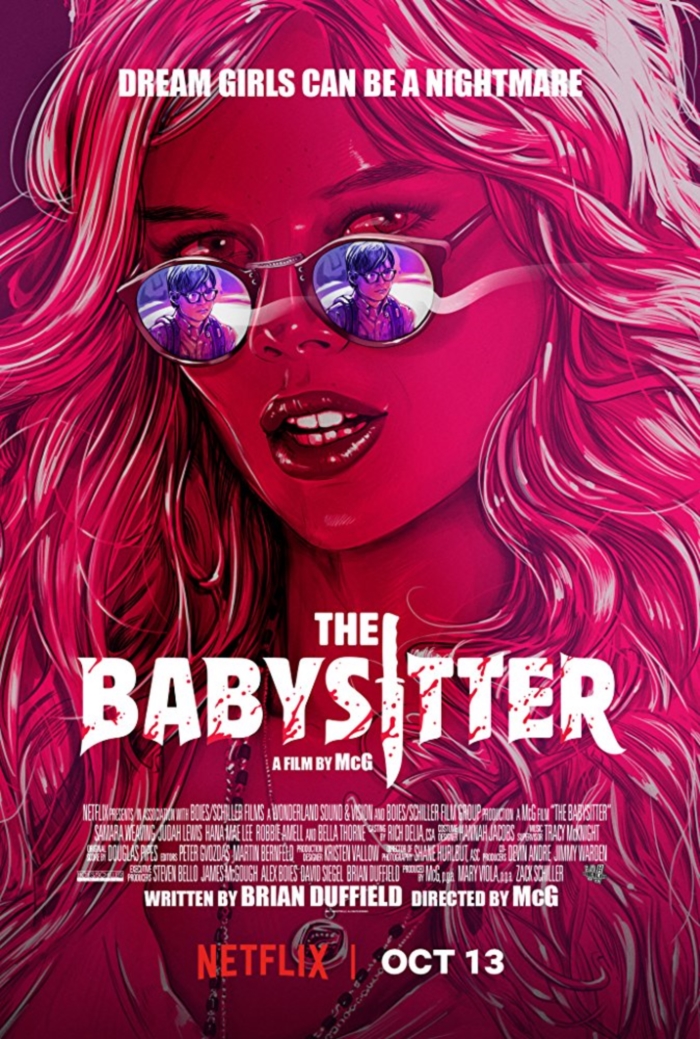
Q: Can you make a short presentation about your background before becoming a composer?
Douglas Pipes : My first job was for a French director. I was pursuing a career as a songwriter in a band when Alan Ruffier approached me to create music for his independent film. I worked on two films for him and found that I loved composing music for film. I composed music for three independent films and realized I wanted to become a better composer, so I stopped taking work and went to university to study orchestral composition and orchestration. I had plenty of experience with synthesizers and computers but wanted to become a more well-rounded composer. During my studies here in California I took a year as an exchange student to study music at a university in London and followed that year attending a summer academy at IRCAM in Paris. When I returned to university here I met Gil Kenan, a film student at UCLA. We worked together through college and I scored his student films, and when he landed the job as director of Monster House he brought me on board as his composer. I had never done a studio feature, and with the incredible help and trust of Gil and the producers I was given the opportunity to demo the entire film and have the studio sign off on the score after it had been fully mocked up and played in test screenings. It was an absolutely wonderful experience and I have so much gratitude to all involved for giving me the opportunity.
Q: What is for you the main duty of a good composer?
Douglas Pipes : For me it is to help illuminate the story that the filmmakers are looking to tell. Music can convey so much, really take the story in many directions, and it is important that it follows the direction of the filmmakers. A composer job is bringing someone else’s project to life, and must always remember that you are fulfilling someone’s vision. Always experiment, try to find the unique voice for the film, get to the heart of the characters, but never become so attached to a piece of music that you don’t respect how the filmmakers are responding to it. Listen to feedback, as the most successful scores are a collaborative effort.
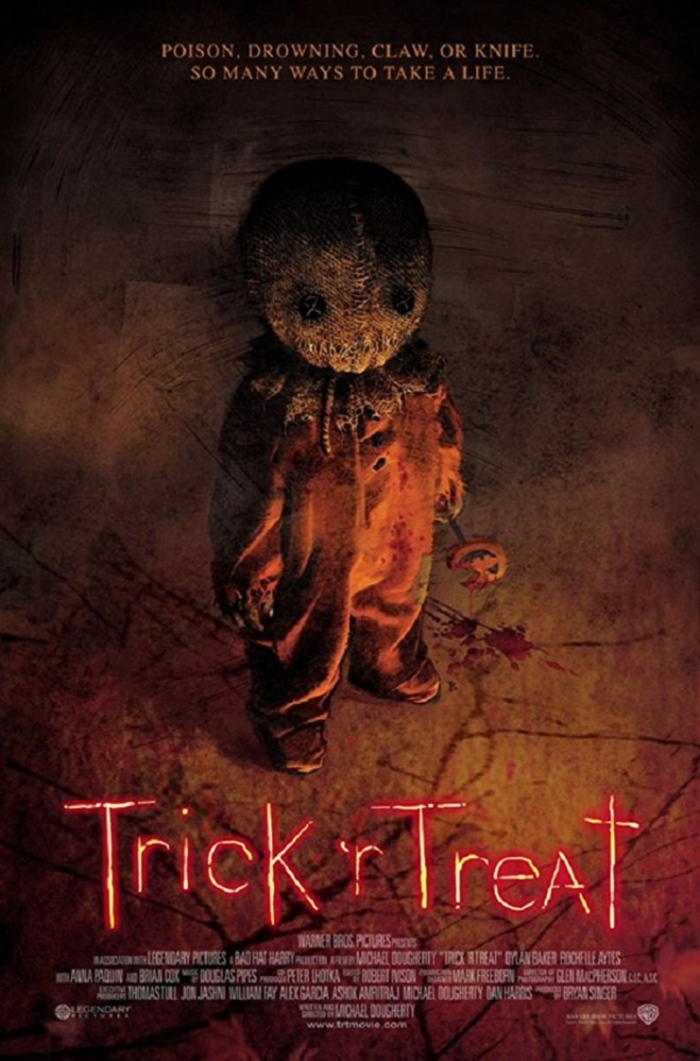
Q: What can you tell us about your collaboration with Michael Dougherty on the excellent and perfect for Halloween movie Trick’r Treat?
Douglas Pipes : Michael had seen Monster House and approached me to score his directing debut. In the earlier stages I played a theme based on the children’s Halloween chant. I altered the rhythm very subtly and gave it a dark harmony, wanting it to be reminiscent and nostalgic of Halloween without being exactly on the nose. He immediately loved it and that theme became the common thread that helped weave together the different stories of the anthology. Michael has an encyclopedic knowledge of film music and we share a mutual love for thematic film scoring, we have a wonderful composer-director “shorthand” when discussing film music and how the music is to work for any given situation.
Q : How have you found a so great inspiration to write the score of Krampus? Have you seen a lot of horror movies as Gremlins to found this inspiration?
Douglas Pipes : Yes! My film music education is very much steeped in Jerry Goldsmith’s scores. I’m a Poltergeist fan (who isn’t?!?) a Gremlins fan, and a true lover of the storytelling horror movies that used music and melody so effectively. Those scores are very dramatic scores, not just horror scores. Dynamics and melody are so important in those scores. On Krampus there are fragments of Christmas melodies decorating the entire score, so that even during the most horrific moments onscreen the essence of Christmas is lingering in the choices of instrumentation and use of melodic fragments of traditional Christmas music.
Q: What must be for you the purpose of a great score and how do you found a powerful inspiration to create this music?
Douglas Pipes : The main purpose of a great score is to elevate the film emotionally in ways that transcend the visuals. For example on The Babysitter we really wanted the music to reinforce the relationship between Cole and Bee, to not lose sight of the heart that is the undercurrent of the movie. This is also true on Krampus and Trick ‘r Treat as well, where the music is following the characters through all the action. As for inspiration on The Babysitter for example, McG gave those characters such a depth of emotion in their performances that through all the mayhem, their performances beautifully anchor his exuberant visual style. Much of the score writing was to follow the longer arcs and bring out the depth of these characters. While the action and horror writing is certainly a joy in itself to realize, it is illuminating the character story arcs that is often the most rewarding aspect of the composing process.
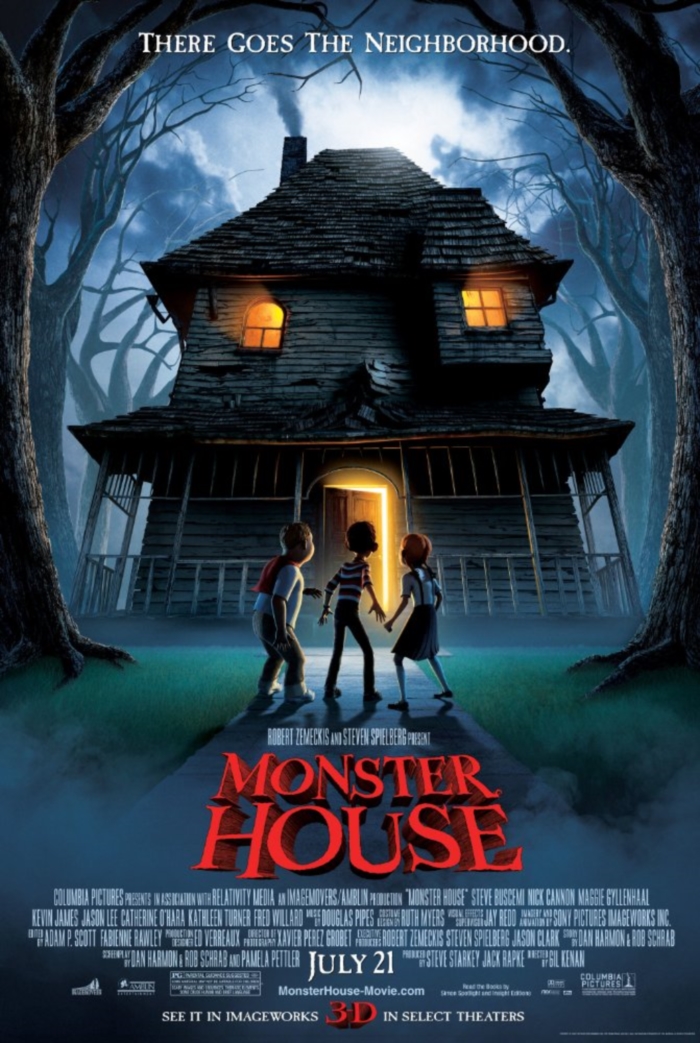
Q : What can you tell us about your collaboration with the director Gil Kenan on the movie Monster house?
Douglas Pipes : I met Gil while we were both at university, and I scored his student films. One of those films caught the attention of Robert Zemekis and Steven Spielberg, and he was hired to direct Monster House. He asked them to bring me on as his composer and amazingly with the help of Steven Starkey and Jack Rapke, the other producers on the film, they worked out a situation where this unknown composer would write that entire score for the movie, and then the studio could decide whether felt it worked and would to proceed to record it with an 85 piece orchestra.
Q : How do you work with directors to find the perfect match between the movie and your music?
Douglas Pipes : I really like early collaboration and sketching ideas. Often the earliest ideas that a director responds to can bear much fruit. On most films I’ve ever worked on many of the original inspirations, those first intuitive reactions to the film end up playing major roles compositionally.
Q : What is for you the main difficulties that you have met during the creation of a movie score?
Douglas Pipes : The first challenge is finding the voice of the film. The search musically for something that makes telling this story unique, and hopefully becomes so woven into the fabric of the film that when you hear it outside the film, the story is told just as in the film. This can happen quickly or it can take some experimentation. This brings up another challenge which is time. As a composer you have to deliver on a deadline and it comes down to focused writing and time management. Of course every artist cherishes the time given to work the canvas, to experiment in a relaxed way, and to let things unfold. On tight deadlines your instincts become very focused and this too can create some of your best work. Some of my favorites pieces that I’ve composed have come on very tight deadlines.
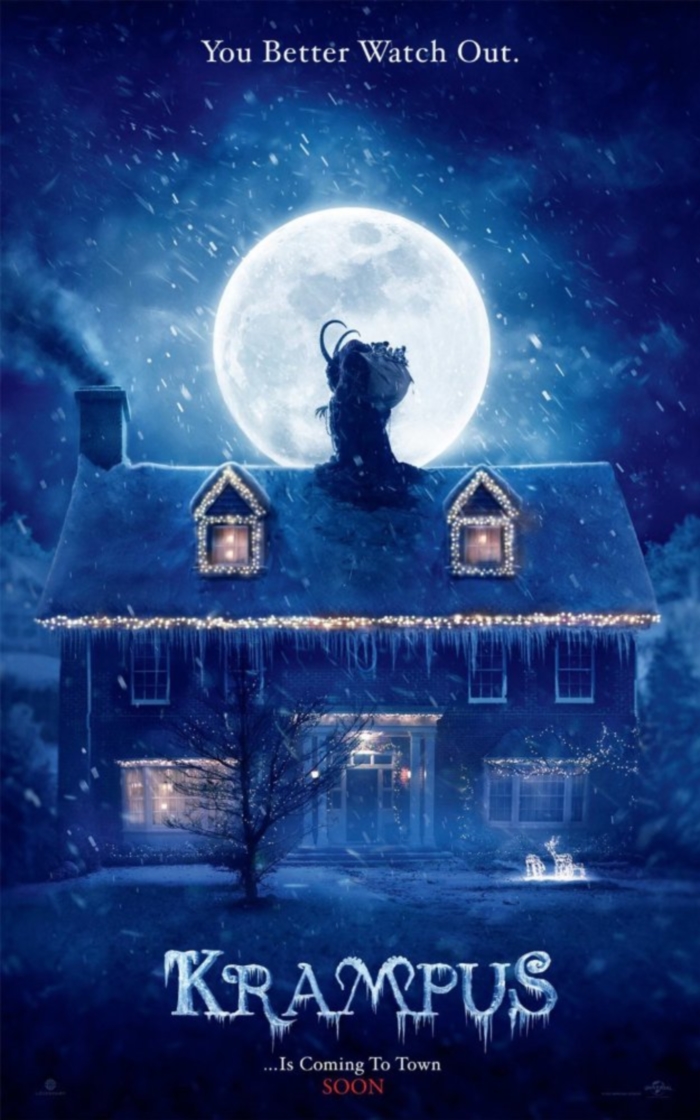
Q : "Halloween season just ended…What is for you a great horror movie and can you explain why the music is so important for these kind of movies?
Douglas Pipes : Again I’ll go back to Jerry Goldsmith’s Poltergeist score as one of my favorites. His score is really not a traditional horror score but a fantasy score with a strong lyrical beauty. It’s the dynamic of this lyricism, the beauty in the fantastical writing, and the visceral horror music together that makes the score so phenomenal. It all comes from a storytelling and character standpoint…not having the music tell us we’re supposed to be scared but setting us up to be scared more subtly and naturally, and then ratcheting up the intensity.
Q : On which software do you like to work and which instrument is your favorite and why?
Douglas Pipes : I work primarily in Digital Performer, Pro Tools and Finale. Piano that is my main instrument and most of my writing begins at the piano, writing themes and harmonic progressions. When the occasion calls for it I sometimes begin on one of my synthesizers, usually the Memory Moog because if I’m looking for a distinct sound.
Q : What can you tell us about the movie The Babysitter that was just on Netflix?
Douglas Pipes : This movie is a really over the top exhilarating ride of a movie. Definitely watch it with friends as it is laugh-out-loud funny. The script was so sharp and McG’s directing is layered with an incredibly dynamic mix of in-your-face comedy and horror that retains a real warmth in the coming of age story between the Cole and Bee, the two main characters. I was floored by it when I first watched it, it really was a fun project! Loved McG’s the music meetings with McG, he’s a true music lover.
Q : Will you be interested to work with French directors?
Douglas Pipes : I started my career with a French director! I have spent a lot of time in France and am a fan of French cinema, it would be great to work with a French director again.
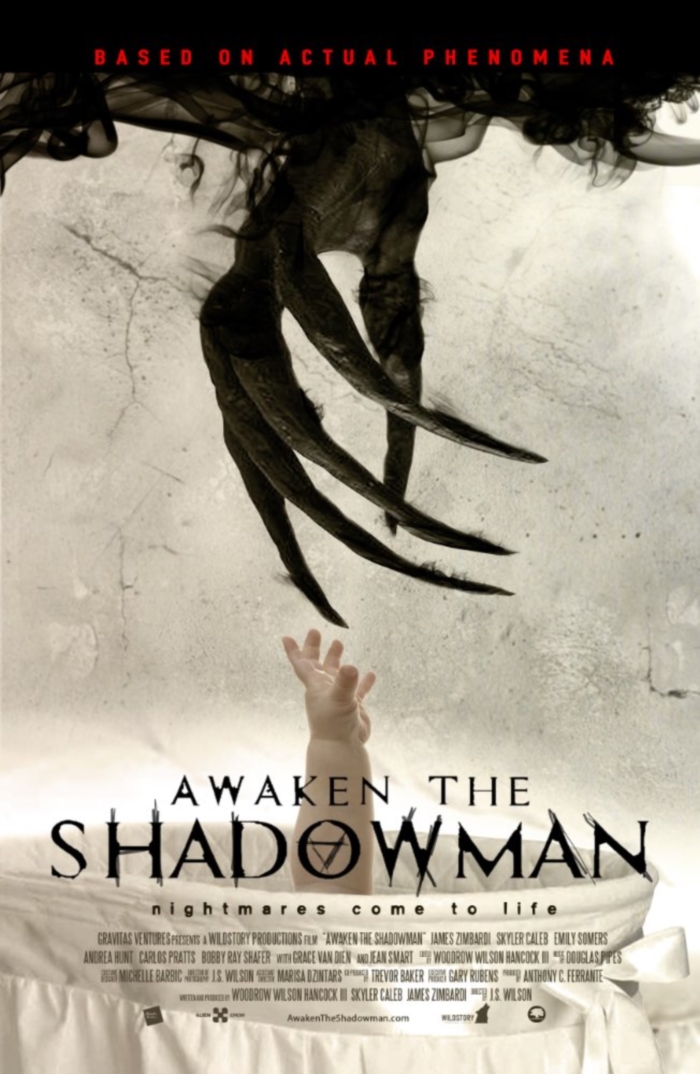
Q : What can you tell us about your work on Awaken the Shadowman?
Douglas Pipes : I really enjoyed creating the score for this film, it’s mostly analog synth with some live strings. It’s quite different from my previous scores and is much more textural in nature. It is a very dark and ambient score with an undercurrent of voices and metallic resonances. It was recently released on CD and digital through La La Land Records, synth score fans check it out!
Q: Can you talk at all about your recent projects?
Douglas Pipes : Douglas Pipes : I just completed a commissioned live to film score for Buster Keaton’s The General. It was commissioned and performed by The Dallas Chamber Symphony under the direction of conductor Richard McKay. It was such a joy writing a pure comedy action score. The musicians were brilliant and the concert was so much fun, the silent films are a true highlight. Richard McKay conducts the score without a click track, just following tempos marked on the score and he does and amazing job keeping with music in sync while getting a great performance from his group. It is truly an exhilarating experience to see it all come together live. This was the second silent film score I have composed for them, the first being Alfred Hitchcock’s The Lodger. Hoping to see those scores performed again as there is a real interest in exposing new audiences to orchestral ensembles through these silent film performances.
Selective Filmography
The Babysitter (2017) by McG
The General (2017) (commissioned live concert score) by Buster Keaton
Krampus (2015) by Michael Dougherty
Trick 'r Treat (2007) (original score composer) by Michael Dougherty
Monster House (2006) (original score composer) by Gil Kenan
We sincerely thank Douglas Pipes for answering our questions
An huge thanks to Molly McIsaac for helping us to have this great interview

